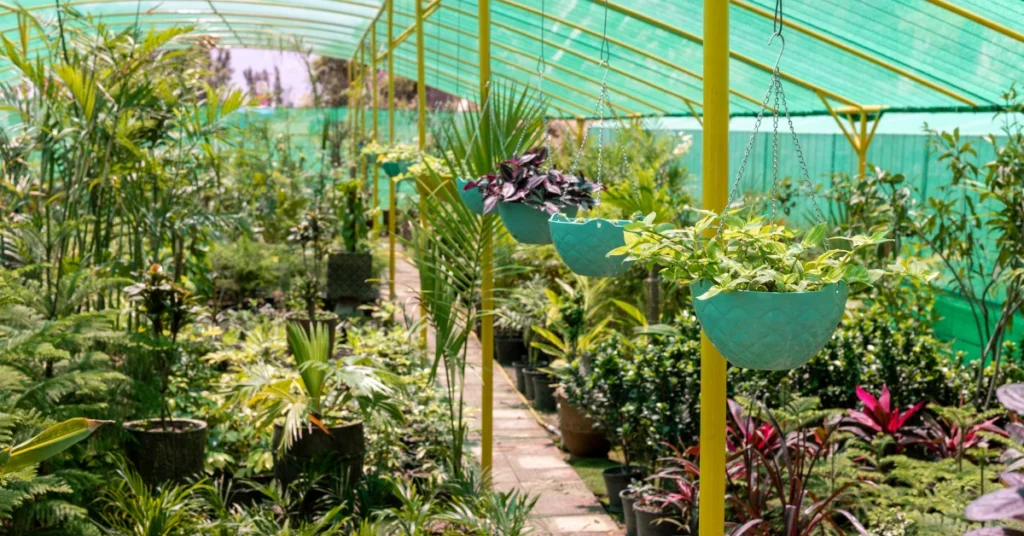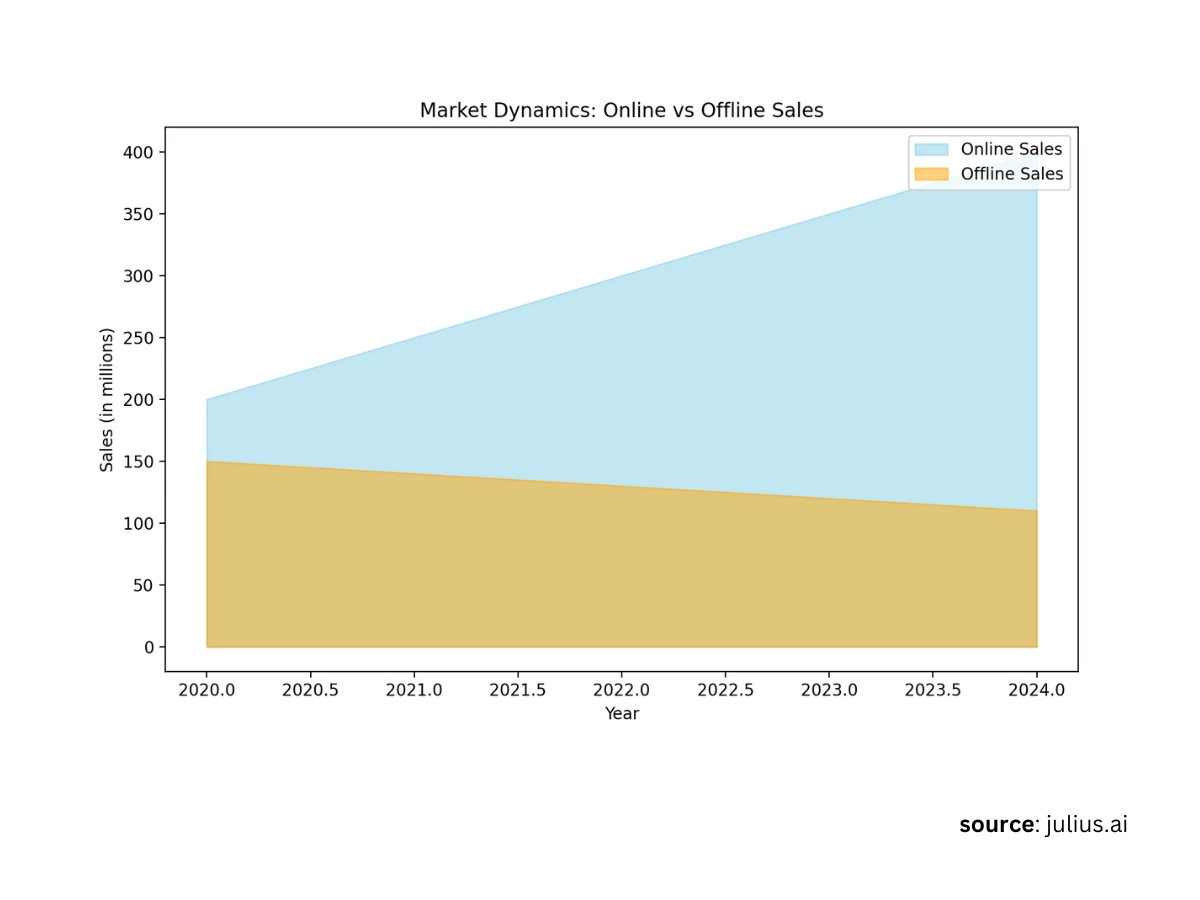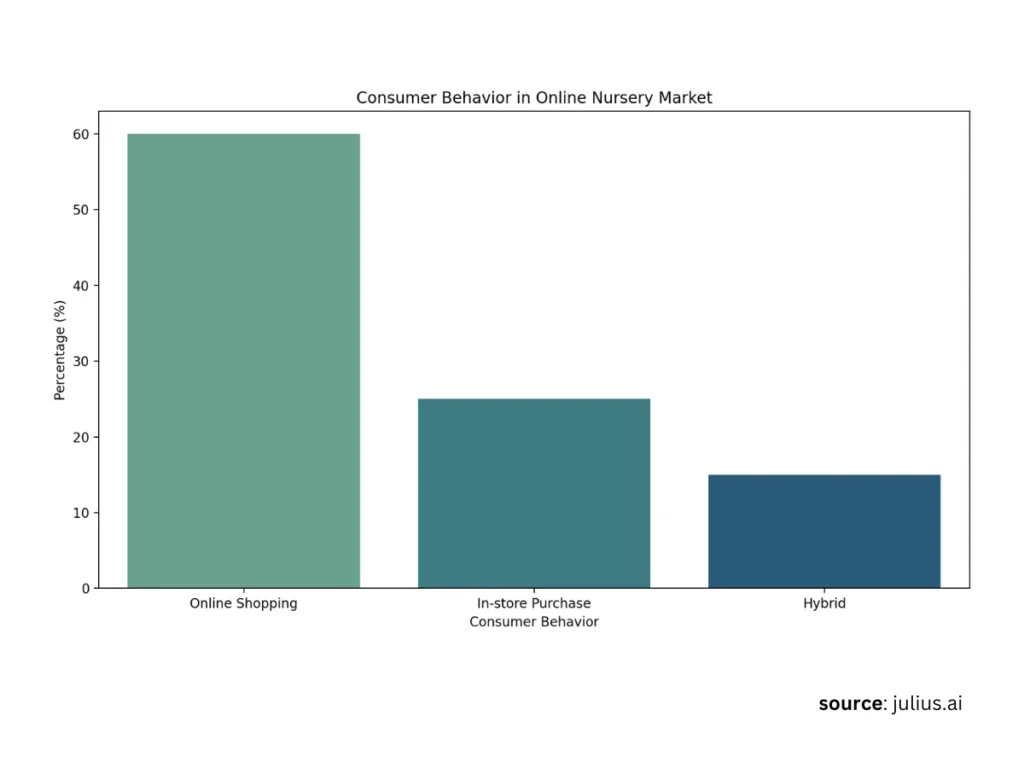Starting an Online Nursery Business From Home

The demand for houseplants, herbs, and other exotics is constantly increasing.
So, now is the best time to plan to start your online nursery business from home.
If you are a plant lover and are looking to go into business, then it is necessary to have this guide that breaks down the basics, including which plants to pick, how to start selling online, how to package the products for delivery, and most importantly, how to make it profitable.
Why an Online Nursery?
With growing urban spaces across India, there would be more people wanting to bring a little bit of nature indoors.
However, lacking any local nurseries which they can refer to, this is where your online plant store will step in to provide them with fresh, healthy plants right at their doorstep.
You’ll be delivering a complete package of convenience and quality to all the plant lovers across the country – and maybe beyond.

Choose Your Plant Niche
First of all, you decide what kinds of plants you are going to sell. Focusing on a niche can differentiate your business from others and in the long run help your brand remember. Here are some popular niches:
Think Practical, Start Small: So, jumping into a niche without testing can feel a little risky, so think of plants that are practical and have steady demand.
That is why indoor plants work; they are universally popular and relatively easy to maintain.
Urban people especially like low-maintenance plants, because such species thrive in an apartment environment and don’t require much sunlight.
Health and Wellness Trend: Increasingly health-aware consumers are seeking medicinal and edible plants such as tulsi, basil, and aloe vera.
This is a growth market due to the increasing awareness of health-oriented consumers paying much more attention to organic, in-home options for personal use.
These are not just foliage-they are natural remedies that add so much value to everyday life, making them just what that sector of your market is looking for in order to be healthier.
Aesthetic and Low Maintenance: Succulents and cacti are quite trendy nowadays because they look pretty good and require less care.
Your target may be working professionals or young adults wishing to brighten up their homes; then these could really be the best options for them. They are relatively affordable to source and easy to propagate for profitability as well.
Unique and Rare Plants for Collectors: This is for the plant enthusiast who would actually pay a premium price for something that’s of high value.
Think of plants like bonsai trees, special orchids, or other non-domesticated tropical species. This niche appeals to those who will consider plants to be collectibles and are willing to spend for quality.
However, as these plants prove to be more demanding, this section will become harder to care for, so it’s only worth entering if you’re ready for a more high-maintenance process.
Sourcing Plants
Whether you outsource plants from suppliers or grow on your own, there are advantages and disadvantages to each. Here’s the bottom line on how to make it work:
Finding Reliable Suppliers
If you’re new to the industry or have a heavy focus on sales and marketing, partnering with plant suppliers makes sense.
But finding the right supplier isn’t all about cost; it’s all about consistency and quality. Here are some things to look for:
Check Their Reputation: Look for nurseries or wholesalers with a good track record. Ask around in gardening communities, or check online reviews, to find suppliers known to provide healthy, pest-free plants.
Visit Their Facility: Where possible, visit the supplier’s nursery to see their plants in person. That gives you a sense of how well they take care of their stock and whether the plants are thriving.
Negotiate Terms: Strong suppliers are willing to be flexible with your terms. You could negotiate more significant discounts or payment arrangements that fit your budget.
Start with distributors locally to minimize cost of shipment and ensure the plants arrive fresh for your customers. Later, as the business expands, you can look to regional and even international sources to increase your offerings.
Grow Your Own Plants
If you have the space, time, and interest, you can grow plants on your own to give you higher quality and margin control.
The more niche markets you’ll target, such as rare plants, succulents, or organic herbs, make it even more enticing. Here are some things you must consider:
Start Small: Start with a few varieties that are easy to grow and fit what is in your target market. This will give you room to test the waters without overcommitting.
Invest in Basics: Pots, soil, seeds, fertilizers, and basic gardening tools will be needed. For propagation, learn techniques like stem cuttings or grafting to multiply your stock without significant additional costs.
Keep track of growth: Healthy plants should be maintained at the ideal balance of light, water, and nutrition. Use natural methods as much as possible to assure quality, especially when you are selling them as organic.
Starting from scratch and growing your own plants can have a number of costs to get it going but rewards lie in the long-term profit margins through offering unique products that are personal expressions of your brand.
Hybrid Approach
Many businesses can make use of both strategies together.
For example, you can grow fast-moving products such as herbs on your farm, but purchase other slower-growing or seasonal products from your suppliers.
This gives you the flexibility to scale your inventory without being overwhelmed.
It means a balance of cost, quality, and convenience when sourcing your plants. Do you rely mainly on wholesalers and suppliers or grow your own stock?
Maybe a little of both. The basic idea is to deliver fresh, attractive plants to bring customers back for repeat purchases.
Going Online
 Leverage Social Media
Leverage Social Media
Your customers are already going to find their place on social media, especially through Instagram and Facebook. Share relevant content, including:
- Shots of plants in real homes, set up like a cosy corner or sunny windowsill.
- Care tips, fun facts, or before-and-after stories from happy customers.
- Behind-the-scenes images of nursery operations–people love seeing a human side to businesses.
You should have a vivid presence with stories, reels, and posts; always comment on their messages promptly to build up trust and rapport.
Expanding with E-commerce Platforms
List your plants on websites like Amazon or Flipkart, or even more specialized gardening sites.
They connect with millions of active shoppers, but they charge fees and maintain quality control standards.
Use this platform to gain exposure while focusing your efforts on repeating customers to your own website.
Your online setup need not be absolutely perfect at first.
It can start small and grow by involving your early customers to get feedback and enhance as you grow. It’s like a living space… just take care of it and it thrives, like the plants you sell.
Building your website
Your website should be considered the heartbeat of your business.
Keep it simple, but professional. Platforms such as Shopify or Wix have preset templates that will make it very easy to navigate. Emphasize what matters most:
Product Listings: Show off your plants through high-quality photographs taken against a clean and well-lit background. Provide detailed descriptions including how much care they need, what sunlight it needs, and how much to water. Not only does that communicate information, but also put those buyers, especially first-time ones, at ease.
Clear Navigation: Categories should be well-organized like “Indoor Plants,” “Succulents,” or “Herbs” so customers understand where to find what they’re looking for.
Checkout options: The checkout process should offer different payment options like credit cards, UPI, or cash on delivery. A seamless checkout process is the need of the hour to convert interest into sales.
Packaging and Shipping Plants
Shipping plants is challenging because plants are sensitive and can be damaged in transit. You need to take much more care while packaging:
Wrap roots and soil: Wrap the soil and roots so that the soil and roots do not get parched.
Insulation: With shredded paper or even another environmental material, the leaves are padded so that the plant does not move in the package.
Ventilated Boxes: Most plants require aeration, so choose the boxes that have small holes in them for this.
Also, be open about shipping times and conditions.
If the customers know what to expect, they will be willing to wait for delivery times.
Improper packaging and even good communication would ensure that plants arrive healthy and in good condition.
Profitability
Profitability in the online plant-sale business is highly dependent on cost management and customer loyalty.

The nursery and ornamental plants market in India will grow well with revenues reaching up to INR 17,700 crore by the end of 2026 as green decor increases and indoor plants grow in popularity.
Source: CEO Insights India
For profitability, focus on these areas:
- Cost Management:
Plants & Packaging: Good quality plants and eco-friendly packaging make your brand stand out while keeping the costs in check. Eco-friendly packing attracts customers concerned with the environment.
Shipping: Regional shipping can cut down on shipping costs. For example, it may cost INR 50 to INR 150 a package based on distance.
Marketing: Focus on cost-effective digital strategies like SEO and social media ads. The Return on Investment is much better for small businesses when it comes to these digital strategies
- Pricing & Volume:
This niche can command a 25%-50% profit margin. The profit margin will boost on selling larger volumes in urban markets or on premium plants such as bonsais and air-purifying varieties.
- Customer Retention
Repeat sales and word of mouth are big contributors to growth.
Customer-centric services, like plant care guides or loyalty discounts can help foster long-term relationships with the customer.
While your business is growing, working with local suppliers and delivery partners whom you can rely on to run efficiently will help bring costs down even further.
Meaning that this venture will not only be profitable but sustainable in the long run.
Take inspiration from leading players
Some of the online nursery businesses leading this market in India currently include:
Nurserylive – Nurserylive is one of the leading players in the Indian online nursery market.
It offers a wide variety of plants, ranging from indoor and outdoor plants, and seeds to gardening accessories.
It possesses quality as well as customer support and therefore caters to both beginners as well as seasoned gardeners through products tailored to urban lifestyles.
Ugaoo – This nursery holds mainly plants, planters, seeds, and garden tools, also includes unique stuff such as live greens to be used indoors in offices and homes.
Ranging from the most common to rare varieties, Ugaoo is especially popular among enthusiasts of the plant world.
Kadiyam Nursery – Based out of Andhra Pradesh is one of the largest wholesale suppliers in India. They have a great online presence with fruit plants, flowering plants, medicinal plants and landscaping products.
The wholesale experience by Kadiyam Nursery also attracts people like landscaping businesses and some individual buyers seeking bulk supplies.
Green Decor – This nursery would mainly target clients from the urban setting.
They would either sell the plants with air-purifying features, and succulents or sell indoor gardening equipment.
Their collections will focus on modern indoor decor and sustainability. This nursery would be the city’s best destination.
TrustBasket – A DIY gardening-focused company, providing plants along with green, organic kits for gardeners, fertilizers, and pest repellents.
They specialize in sustainable gardening and can help budding gardeners find their way into this phenomenon.
Final Thoughts
An online nursery business in your home will be both rewarding and profitable business, only if you have an honest love for plants as well as the nurturing quality to build relationships with your customers.
The key steps outlined, primarily at the forefront of the customer’s experience, will help your green business flourish.
Whether you are gifting a succulent to a newbie or a rare plant to a collector, always remember that every order can be an opportunity to spread the joy of plants.
Disclaimer: The information contained in this blog, The Growth File, is intended for general informational purposes only and does not constitute professional advice. Always consult with a qualified professional before making any business decisions based on the information you find on this blog.
